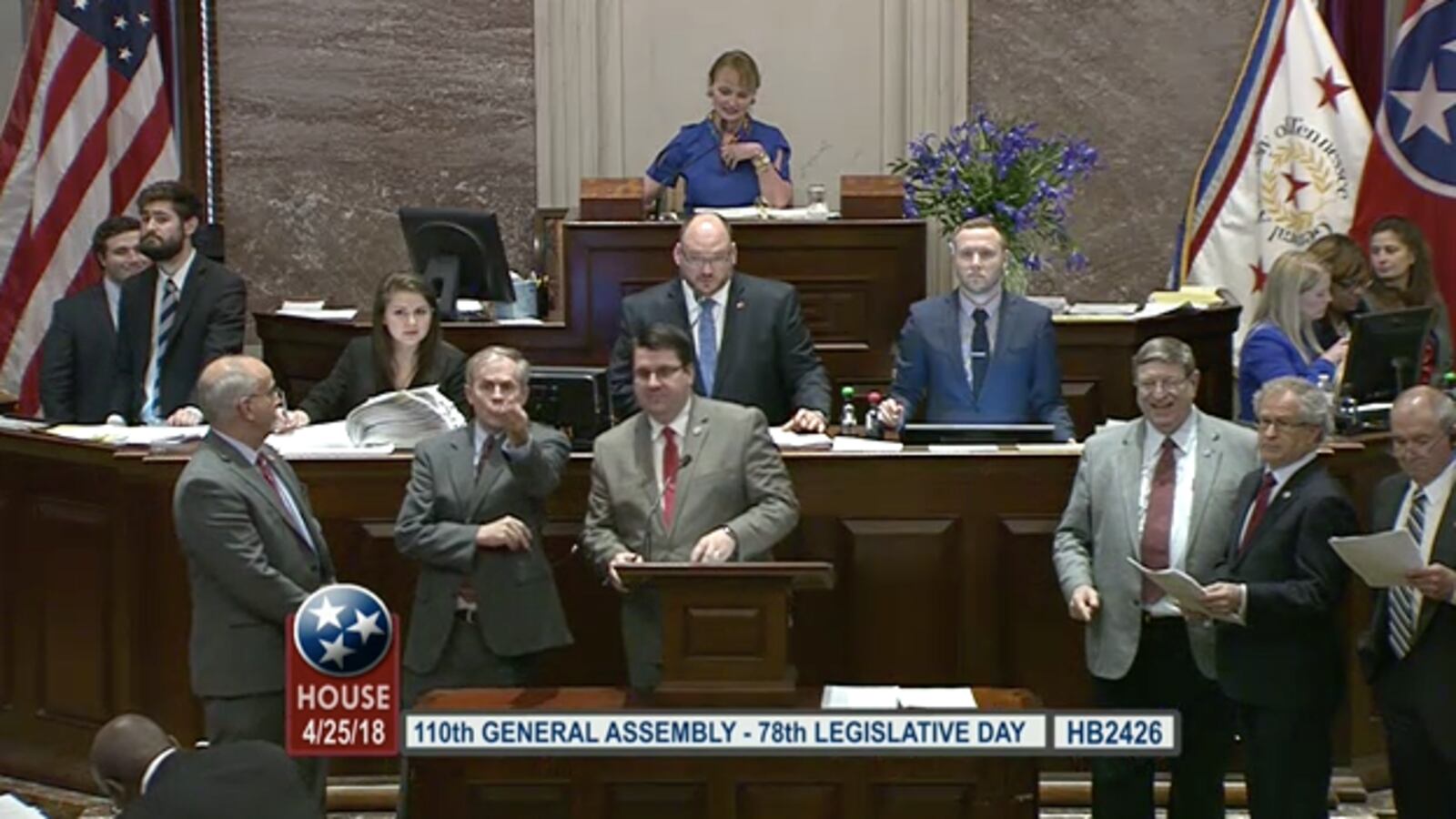The trouble with developing an emergency exit plan in the midst of a fire is that it’s hard to think through all the details.
That’s how some are describing the recent flurry of lawmaking in Tennessee, where lawmakers passed two pieces of emergency legislation last month while the sky seemed to be falling down around Tennessee’s computerized test.
The 11th-hour bills were a response to public outcry over TNReady, the state’s problem-plagued standardized assessment, including concerns that daily interruptions to the online version had made the results unreliable. The intent of the legislation was clear: “No adverse action may be taken” against any student, teacher, school, or district based on this year’s results.
Now, staff members with the state Department of Education are in daily talks with federal education officials over whether the legislation has put Tennessee out of compliance with the Every Student Succeeds Act, the federal law that is also tied to funding.
They expect to have an answer by next week.
The 2015 law requires states to test students annually in grades 3 through 8 and once in high school, and Tennessee will accomplish that this year, albeit in a rather messy fashion. But ESSA also requires states to create systems that hold schools accountable for performance based on several measures that include student achievement. That’s the sticky part for Tennessee, where TNReady scores provide that measure.
Thus, even as the state legislation has helped school communities feel a little better about TNReady woes, it has raised a flurry of new questions about Tennessee’s plan under ESSA.
If the scores don’t count, do chronically underperforming charter schools now get a pass from being closed this year? Can schools that continue to hover in Tennessee’s bottom 5 percent avoid state interventions? And how will Tennessee proceed with its plan to give schools A-F grades this fall — as also ordered by state lawmakers — if it can’t use standardized test scores to help grade them?
“We’re concerned that there’s now going to be zero accountability tied to these scores,” said Gini Pupo-Walker, who leads the Tennessee Educational Equity Coalition and served on the state’s ESSA working group. “Accountability prompts action. And if you don’t have an assessment that gives you a sense of achievement and growth, you don’t know who your low-performing schools are in order to take action, and you don’t know where your bright spots are that we can celebrate and learn from.”
Added Charles Barone, national policy director for Democrats for Education Reform:
“Wouldn’t it be great if we could skip our annual reviews at work and avoid the discomfort of getting the feedback necessary to get better at what we’re paid to do? That’s what Governor (Bill) Haslam and the Tennessee legislature have just done for those charged with the responsibility of providing high-quality educational opportunities for every child.”
"We’re concerned that there’s now going to be zero accountability tied to these scores."
Gini Pupo-Walker, Tennessee Educational Equity Coalition
As Tennessee and federal officials iron out the wrinkles created by the bills — one of which has been signed into law and the other that’s expected to be — state officials are working to avoid asking for a waiver to federal education law. Waivers were a hallmark of the Obama administration and the previous version of ESSA, No Child Left Behind, but would be new territory under President Donald Trump and his education secretary, Betsy DeVos.
The state might be able to get away with updating Tennessee’s plan under ESSA, which would only require that the governor sign off on it.
“Should a State wish to amend its plan, the Department will consider all amendments based on their compliance with the law,” said Elizabeth Hill, a spokeswoman for the U.S. Department of Education, in a statement. “The Department will continue to work with Tennessee to ensure that its approved plan is implemented with fidelity and in accordance with the law.”
Sara Gast, Hill’s counterpart in Nashville, said Tennessee’s Department of Education is “striving to be as thoughtful, collaborative, and efficient as possible as we work on this.” She added that Education Commissioner Candice McQueen is seeking to “honor the spirit” of the legislation while also keeping the state in compliance with federal law.
“Our ESSA plan exceeded the minimum requirements,” Gast said, “and we still fully expect to meet our obligations under ESSA.”

